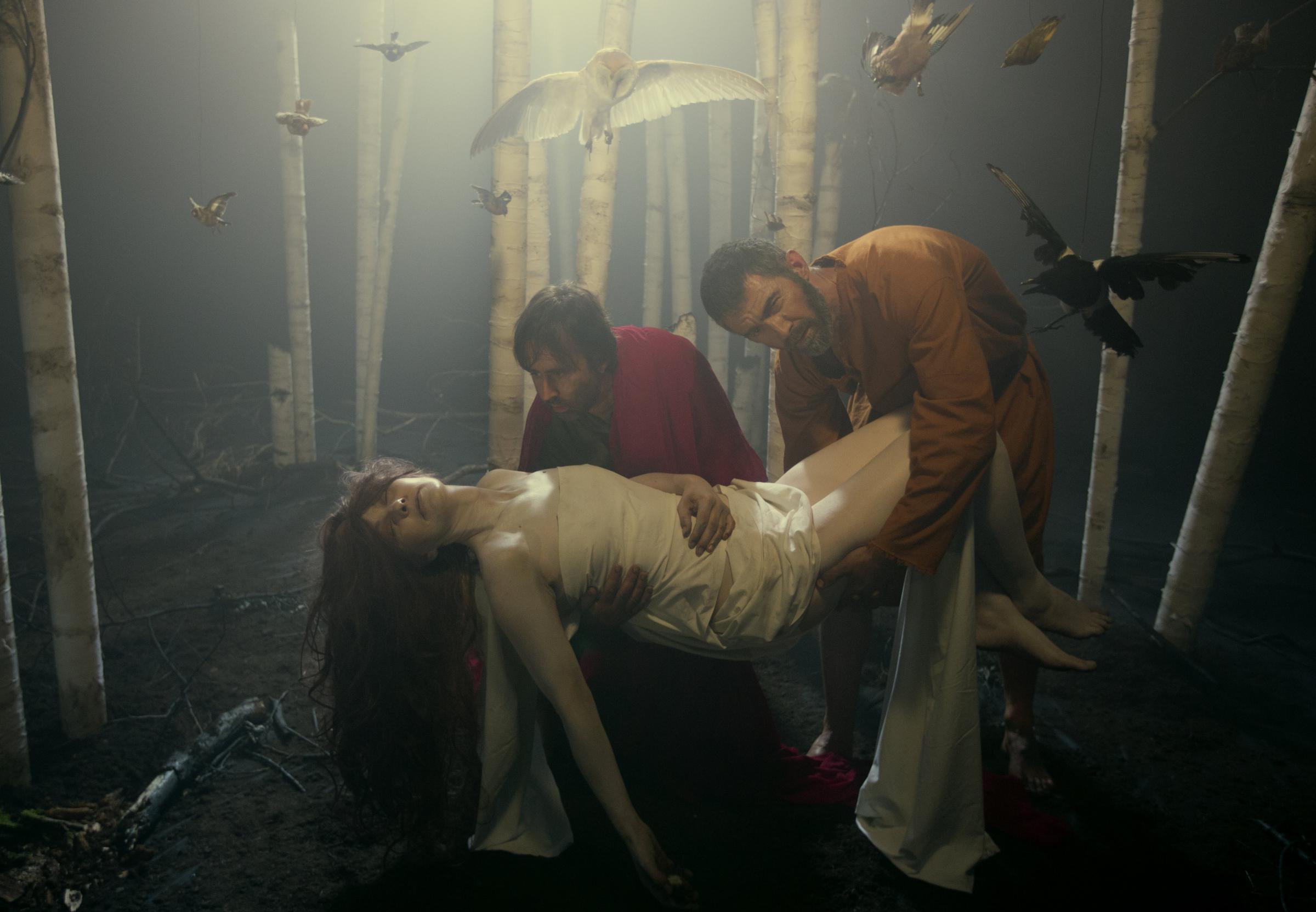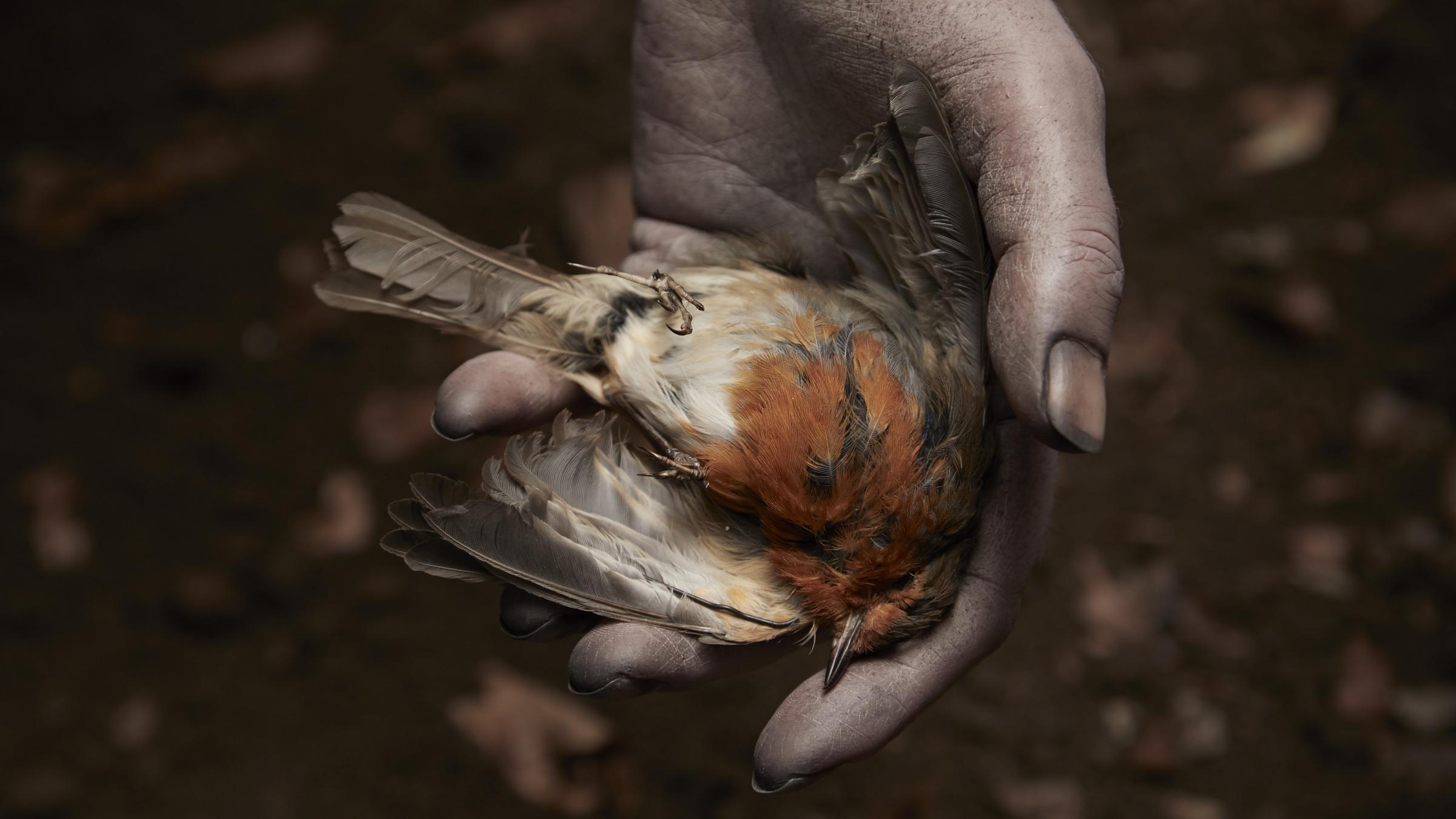
ON Saturday, May 21, on the Southside of Glasgow, begins the UK tour of the extraordinary film The Deathless Woman.
The work of experienced writer-director Roz Mortimer, the film addresses the Nazi Holocaust of the Romani peoples of Europe, and the on-going, 21st century persecution of the Roma (people whose origins lie in northern India, but who have lived in Europe since the ninth century).
It is appropriate that the screening (which is free) should take place on Glasgow’s Southside. The area is home to Scotland’s biggest Roma community.
The film is rooted very firmly in fact – from the wartime massacre of Roma in a Polish forest, to the Roma uprising in the so-called “Gypsy Camp” in Birkenau, to the killing of Roma people by neo-Nazis in modern day Hungary.
However, Mortimer’s piece is very far from a dry, forensic contemplation of those terrible facts.
Rather it is a powerful hybrid of scientific research and artistic imagination. As if inspired by Albert Einstein’s assertion that mystery is, “the fundamental emotion that stands at the cradle of true art and true science”, the film takes us on a journey through the eyes of a ghost from the Roma Holocaust in Poland.
According to local folklore, during a massacre of Roma people in a forest, a woman rose repeatedly from the mass grave to curse the Wehrmacht soldier who was shooting her. Decades later, say elderly people in the village, when the grave was opened, the woman’s body was taken out, not decomposed like those of the other victims, but intact, with flowing black hair.
In Mortimer’s film, this defiant victim of the Nazis is The Deathless Woman, a restless ghost who reaches out to The Seeker (a fictionalised researcher who stands in for Mortimer herself and is played by actor Loren O’Dair).

The ghost (who speaks to us in an eastern European dialect of the Romani language and is given compelling voice by Roma performer Iveta Kokyová) is filled with anguish and rage. She cannot rest until she has played her part in inspiring a telling of the truth of Hitler’s attempt to entirely eradicate the Roma from Europe.
This combination of imaginative metaphor and factual documentary makes The Deathless Woman a highly distinctive work. Indeed, some of the most visually striking moments in the film come in the use of tableaux vivants (living pictures) that owe a debt to both 19th-century European theatre and the paintings of the Italian master Caravaggio.
When I caught up with Mortimer, I asked her how she arrived at her hybrid approach to what the Roma people call the Porajmos (“The Devouring”). There is, she explains, “not a huge amount of data” about many of the events that took place during the genocide of as many as 500,000 Roma (more than half of the European population at the time) by the Nazis.
“The more I looked at it, the more I worked out why,” she says.
Whilst some Roma were murdered in extermination camps (and, therefore subject to the Nazis’ gruesome documenting of their depravity), most were slaughtered in forests and at roadsides.
“I’m not a historian, I’m not a journalist, I come at it from an artist’s perspective,” Mortimer says. “That gives me a lot more freedom, in terms of how I might tell stories.”
A trained historian “would have to discount any testimony from a witness that talks about ghosts or immaculate [long dead] bodies”, she continues.
However, viewed from an artistic perspective, such testimony can be considered “traumatic memory”, and a rich source for metaphor.
“What if you just accept?” the director asks. “For example, with the notion of a ghost … What about if you just accept that she’s there, that she means something to the people who are there, and that something happened in that place?”
Considered in this way, the metaphysical dimension to local people’s memorialisation of the atrocity in Poland is, the director says, “a way in to tell a story”.
The Deathless Woman becomes a metaphor for a marginalised truth, and for the Roma people’s need for the Porajmos to be properly recognised, as the Shoah (the “catastrophe”) suffered by the Jewish people during the Holocaust is recognised.
The urgency of this comes not only from the fact that the last survivors of the Holocaust are dying out. It also resides in the fact that the Roma in Europe today are subjected to oppression and neglect by nation states, appalling (often genocidal) hate speech and (sometimes deadly) racist violence from far-right and neo-Nazi terror gangs.
In Mortimer’s film, the ghost of the Roma Holocaust victim takes us from the man-made lake in Várpalota, Hungary (which covers the land where 118 women and children were massacred in 1945) to the village of Tatárszentgyörgy, near Budapest (where neo-Nazis murdered a Roma family in 2009).
It was important for the filmmaker to bring her piece up to the present day. Currently, in parts of Europe, she says, “the sort of terminology that is openly used, in public and in sections of the press, about the GRT [Gypsy, Roma and Traveller] community is shocking. You would not have that about other racial groups.”
Nor, Mortimer hastens to add, are such racial slurs confined to eastern and central Europe. The UK’s best selling newspaper – which, frighteningly, is the Daily Mail – is a particular culprit, she says. Indeed, she might have added that it is less than three years since Italy’s then interior minister and deputy prime minister – Matteo Salvini of the far right Lega party – referred to a Roma woman as a “dirty Gypsy”.
Indeed, just four months after Salvini’s outburst, a memorial to Roma victims of the Nazis in Queen’s Park in Glasgow was destroyed. Here in Scotland, we also need to listen to the voice of The Deathless Woman.
The Deathless Woman screens at The Point Community Hub, Queen’s Drive, Glasgow at 6pm on Saturday, May 21. Entrance is free. Following the screening, Mark Brown will chair a discussion with director Roz Mortimer. For further information, visit: thedeathlesswoman.com







